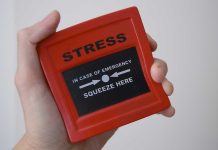
(DailyDig.com) – Life can move by you quickly. It is easy to miss or overlook parts of life. That is why many Americans will find that there is unclaimed money that rightfully belongs to them. In fact, it sounds like a scam but it’s actually legit! According to the National Association of Unclaimed Property Administrators (NAUPA), roughly one in ten people have money waiting to be claimed. These funds are held by state governments and treasuries. That is why Americans get the benefit of being able to check whether or not they are missing any assets that rightfully belong to them through a trusted source of a government site.
Understanding Unclaimed Money
Even though unclaimed money may make you think about free money, it’s actually more in-depth than that. That’s because the funds actually come from a forgotten source and rightfully belong to you. There are a variety of different kinds of unclaimed money that people can find. Some types of unclaimed funds include:
- Annuities
- Certificates of Deposit
- Checking Accounts
- Savings Accounts
- Contents of Safe Deposit Boxes
- Customer Overpayments
- Insurance Payments
- Insurance Refunds
- Mineral Royalty Payments
- Refunds
- Stocks
- Traveler’s Checks
- Trust Distributions
- Uncashed Dividends
- Uncashed Payroll Checks
- Unredeemed Money Orders or Gift Certificates (Only in Some States)
- Utility Security Deposits
How to Find Unclaimed Money
If you want to see if you have any money that rightfully belongs to you, then you will want to make sure you learn the process. The process will vary by state but typically you will want to check out the website run by your state’s treasury department. Besides checking out your state’s website, you may also be able to locate unclaimed funds from public data sources, outreach events, or even national searches. When looking for unclaimed funds you can expect to provide personal details like your name.
How to Avoid Having Your Money Become Unclaimed?
Even though states have the responsibility to return your property, it can still be an annoying process to deal with. That is why you should learn some tips that can help you avoid your funds from getting into this unclaimed status! Some tips that you will want to consider include:
- Keep Accounts Alive
- Keep Your Information Up-to-Date
- Maintain Records
Keep Accounts Alive
It can make a world of difference when you keep your accounts alive. In order to do this, you will want to make sure you have some activity on the account. That includes all types of accounts like:
- Checking Accounts
- Savings Accounts
- Certificates of Deposit
Either making a deposit or a withdrawal can be just the activity you need to keep the account alive. By doing this, you take away the risk of having your account become inactive which can lead funds to become unclaimed.
Keep Your Information Up-to-Date
When your personal information changes, like your address or even your name, it can be easy to forget to update every business you work with. However, it’s important to do this especially with your financial institution or even your past and current employer. If your company sends an asset to an incorrect address or recipient, those funds may become unclaimed since they have nowhere to go.
Maintain Records
You will want to maintain accurate records of any and all of your transactions. This includes any transactions that deal with money, checks, and other types of assets. Even though financial institutions are legally required to have up-to-date records for accounts, ultimately account holders are responsible. That is why having records may be able to help you prevent unclaimed money!
Bottom Line
A lot of Americans don’t realize that there may be money out there that rightfully belongs to them. If there are funds available, it is important to claim them! It is easy to find unclaimed funds. You can search for unclaimed funds in your state through your state’s treasury department. However you can also look through national unclaimed property websites, outreach events, or public data sources. If you have any questions you will want to reach out to your state for more information!
Copyright 2022, DailyDig.com













